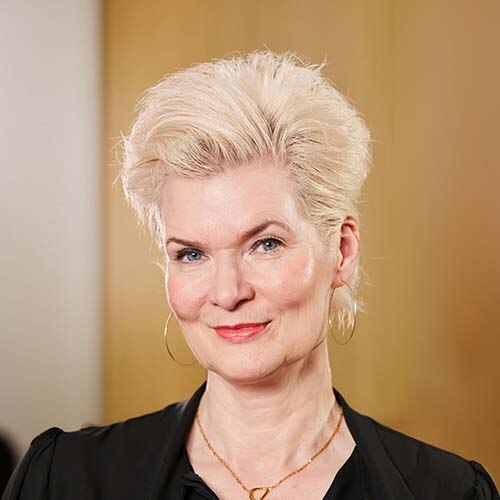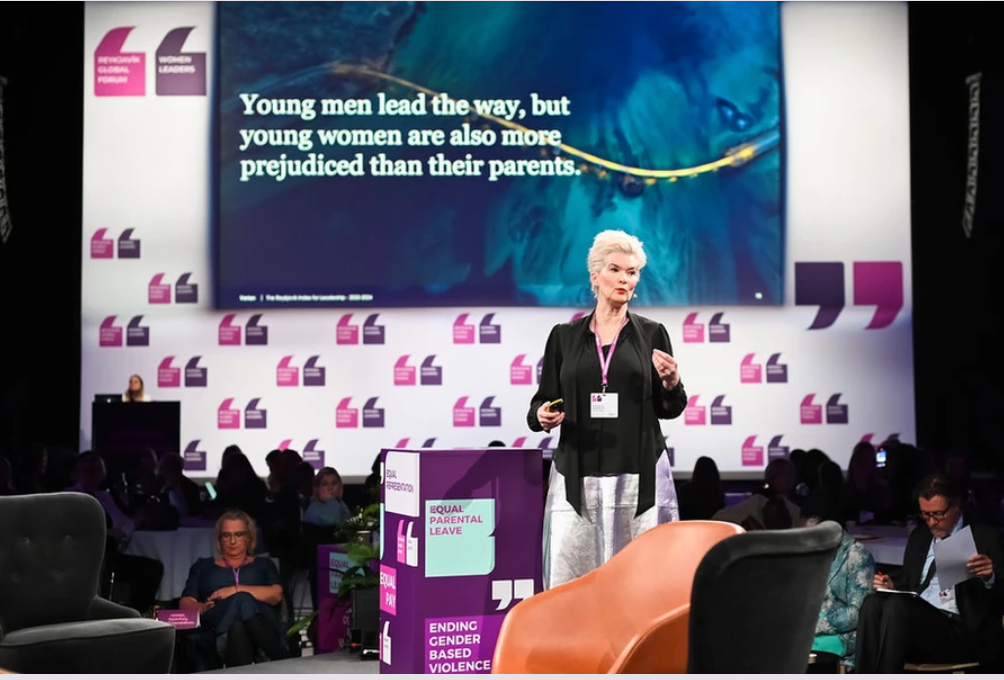Today, 10 November 2025, Dr Michelle Harrison presented the initial findings of the 2026 Reykjavík Index for Leadership in Iceland.
Developed in partnership with the Reykjavík Global Forum, The Reykjavík Index for Leadership is the measure of how women and men are perceived in terms of their suitability for leadership. This is the eighth year of results in the G7.
A score of 100 would mean that women and men were viewed by society as equally suitable for leadership.
Launched in 2018, with the support of the Icelandic Government, the Index measures perceptions of women and men as leaders across 23 economic sectors. The initial findings cover the G7 group of countries together with Iceland.
Initial findings:
- This is our eighth year of gathering data consistently across the G7 nations (Canada, France, Germany, Italy, Japan, the United Kingdom and the United States of America).
- Our G7 score findings in 2018 were 72, and the highest they have reached over time is 73. This year, the Reykjavík Index score is 68.
- However, countries within the G7 are experiencing different trajectories.
- We continue to see the index decline in Germany and the US, particularly among 18 – 34-year-olds.
- Japan and Italy are reversing the trend, where higher index scores show that more people see men and women as equally suited for leadership.
- A gap remains in the views of younger people and older generations, with younger people generally having lower levels of support for equality in leadership than their parents’ generation.
- There is also a difference between attitudes of men and women, as women generally have higher levels of support for gender equality in leadership than men.
- Both men and women face cultural barriers to leadership in certain sectors. Men are seen as less suited for leadership than women in childcare. Meanwhile, women continue to face these challenges in defence, engineering and aerospace.
- Iceland continues to lead the way, although the country is not immune to the overall trend of decline. With a Reykjavík Index of 86, this year’s findings show that Iceland continues to have the highest scores of any country measured with a Reykjavík Index of 86 compared to the G7 average of 68.
- Index scores have increased in Kenya and Nigeria compared with last year, from 52 to 56 for Kenya and 57 to 59 for Nigeria.
Field work period: September-October 2025
Sign up for content relating to The Reykjavík Index for Leadership
The full report will be published in January. Sign up to be the first to read the in-depth findings.
Media
Lois Taylor
Global Marketing Director, Verian Group
Lois.taylor@veriangroup.com
Related insights
Our latest thinking
Subscribe to receive regular updates on our latest thinking and research across the public policy agenda
Our latest thinking
Subscribe to receive regular updates on our latest thinking and research across the public policy agenda.







